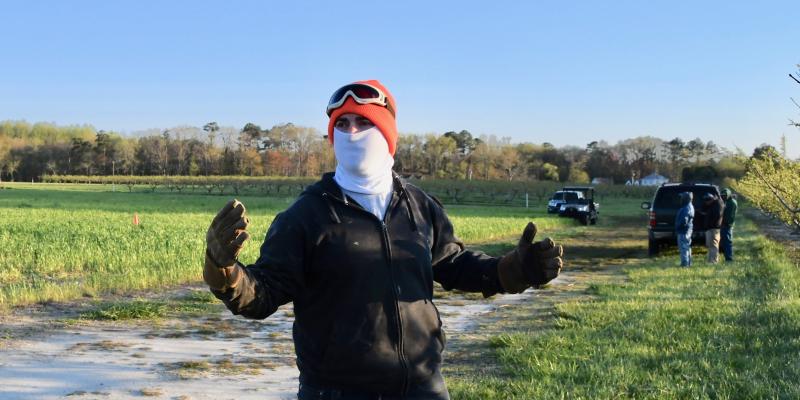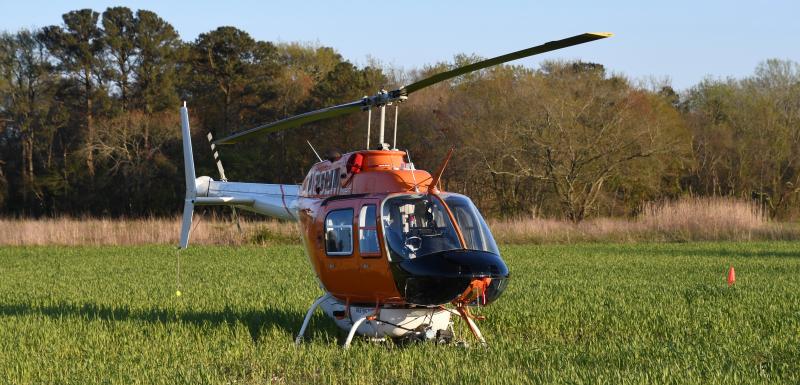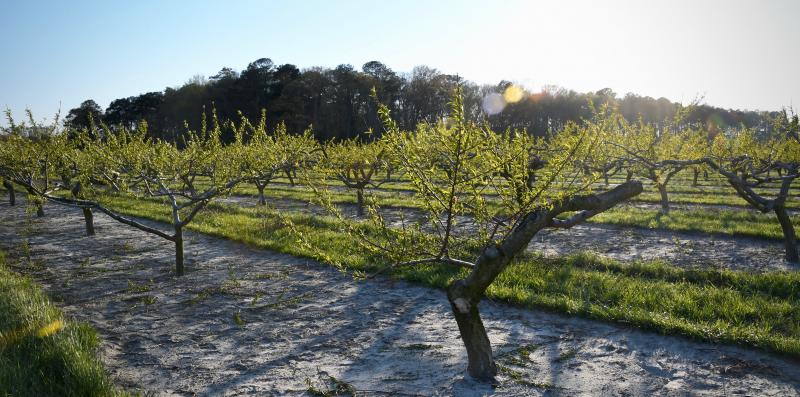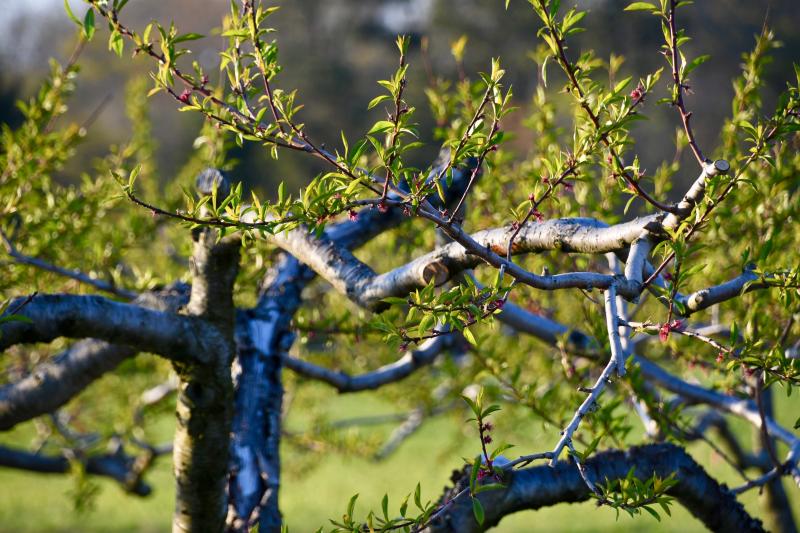A break from Mother Nature and a helicopter worked in harmony to save Bennett Orchards’ peach crop.
With a freeze warning in effect overnight April 16 into April 17, brothers Henry and Hail Bennett put a plan into action, hiring a helicopter and pilot to fly over the 25-acre orchard near Frankford in an effort to stir up the air and force warmer air onto the trees.
Henry said the temperature at midnight was 30 degrees. “We knew it might be a long night at that point,” he said. The brothers monitored several thermometers at different locations.
The temperature remained at 30 degrees until around 5:30 a.m. when it dropped to 29 and then 28 degrees. That's when the helicopter went into action and flew over the orchard's 2,500 trees in a grid pattern until 7 a.m.
Because the freezing temperatures were brief and the temperature leveled off thanks to the helicopter’s work, Henry said, any crop loss will be very minimal. “This was a best-case scenario, which is a rare thing to have in agriculture,” he said.
Henry said the air temperature 40 to 50 feet above the orchard where the helicopter was flying was 37 degrees. “You could actually see the temperature inversion early this morning,” he said.
At this critical time in the growing season, a few degrees of cold weather can make the difference between crop success and failure.
Hail explained that an extended temperature of 28 degrees can result in 10 percent crop loss, but at 25 degrees, the loss can be as high as 90 percent. That's what happened in 2016 when record-low temperatures April 4-5 decimated the crop. Even a helicopter flyover could not save the crop that year because the freezing temperatures lasted so long.
“You live and die by a couple of degrees,” Hail said. “It comes down to one night when we roll the dice on the whole year's income.”
Because of a warmer-than-normal February and March, the peach crop is about three weeks ahead of schedule. “April has actually been colder than February and March,” Hail said.
Their father, Jim, planted the farm's first peaches in 1983, and had the first harvest in 1987. Unfortunately, freezing temperatures wiped out the entire crop in back-to-back years in 1989 and 1990.
Each summer, starting around July 4, the Bennetts harvest about 10,000 half-bushels or about 500,000 peaches, many destined for local farm markets.
The six-generation farm has been in operation since 1867 with the family's roots in the area dating back to the mid-1700s.

























































